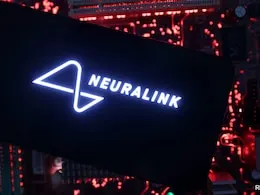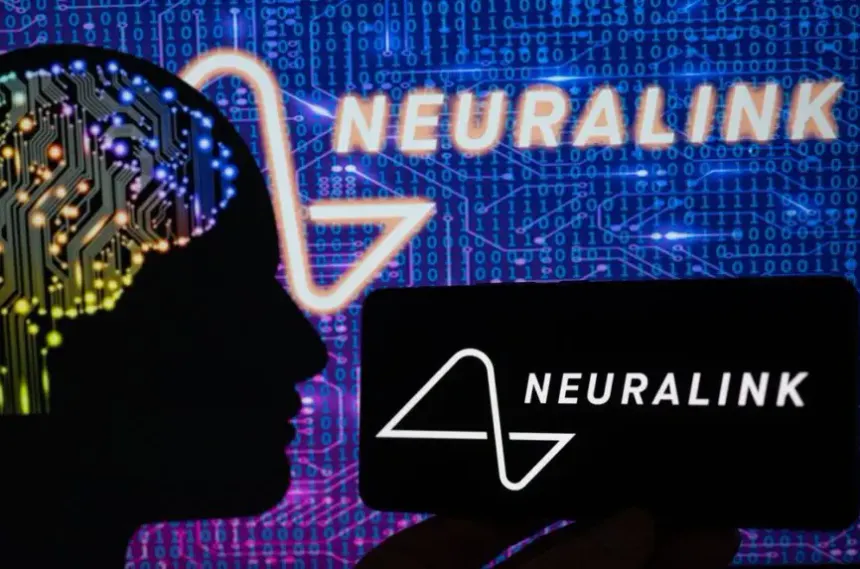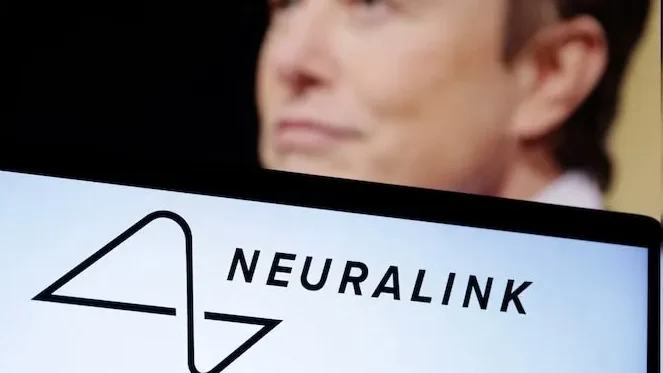Elon Musk’s brain-chip company, Neuralink, has announced the start of human trials for its revolutionary brain implant technology. This marks a major milestone in the world of neuroscience, artificial intelligence, and medical innovation. The first human participant has already received the implant, raising hopes for potential breakthroughs in treating neurological disorders and enhancing human cognition.

What is Neuralink?
Neuralink is a neurotechnology company founded by Elon Musk in 2016. Its goal is to develop brain-computer interfaces (BCIs) that can connect the human brain to computers, artificial intelligence, and other external devices. The company has been working on a tiny, coin-sized implant that can be inserted into the brain to read and transmit neural signals.
Key Features of Neuralink’s Brain Implant:
- Wireless Communication: The chip transmits brain signals wirelessly, eliminating the need for external devices.
- High Precision: Tiny electrodes interface directly with neurons, capturing brain activity with extreme accuracy.
- Real-Time Processing: Neuralink’s software deciphers brain signals instantly, enabling direct communication between the brain and machines.
- Fully Implantable: Unlike previous brain interfaces that required external hardware, Neuralink’s device is fully embedded under the skull.
- Potential for AI Integration: Musk has suggested that the chip could eventually merge human intelligence with artificial intelligence.
The First Human Trial – A Landmark Achievement
Neuralink’s first human trial, which took place in early 2025, is a critical step in the company’s mission. The participant, whose identity has not been disclosed, successfully received the implant and is reportedly recovering well.

Goals of the First Human Trial:
- Testing Safety and Efficacy: Ensuring the implant does not cause harmful side effects.
- Evaluating Brain Signal Accuracy: Determining how well the device captures and interprets neural signals.
- Improving Medical Applications: Assessing how the technology can help people with neurological disorders.
Potential Benefits of Neuralink’s Brain Implant
Neuralink’s brain chip could revolutionize multiple industries, from healthcare to artificial intelligence.
Medical Breakthroughs
One of the biggest promises of Neuralink’s technology is its potential to treat neurological conditions that currently have no cure.
- Restoring Mobility: The implant could help paralyzed patients regain movement by sending signals from the brain to external devices like robotic limbs.
- Treating Neurological Disorders: It may help those suffering from conditions like Parkinson’s disease, epilepsy, and even depression.
- Enhancing Memory and Cognition: Musk has suggested that the chip could improve memory retention and cognitive processing.
Human-Computer Interaction
- Typing with the Mind: Users could control computers, smartphones, and other devices using only their thoughts.
- Brain-to-Brain Communication: In the future, Neuralink could enable direct communication between individuals without the need for speech or typing.
- Gaming and VR Advancements: The chip could create a more immersive virtual reality experience by integrating neural responses.

Ethical and Safety Concerns
Despite the excitement surrounding Neuralink, there are concerns about the risks and ethical implications of implanting chips in human brains.
Key Concerns:
- Surgical Risks: Implanting a chip into the brain is a delicate procedure that carries potential health risks.
- Long-Term Effects: Scientists are unsure how the implant will affect brain function over many years.
- Data Privacy: Storing and transmitting brain activity raises concerns about privacy and cybersecurity.
- Ethical Dilemmas: The potential for mind control, surveillance, or cognitive enhancement raises moral questions.
Elon Musk’s Vision for the Future
Elon Musk believes that Neuralink’s technology will eventually allow humans to keep up with artificial intelligence and enhance human cognition. He envisions a future where people can “upgrade” their brains and achieve unprecedented levels of intelligence and communication.
Musk’s Key Predictions:
- Neuralink will help cure brain-related diseases within the next decade.
- Humans will eventually be able to control computers and robots with their thoughts.
- The technology will help prevent AI from surpassing human intelligence by integrating AI with the human mind.

Competitors and Industry Landscape
Neuralink is not the only company working on brain-computer interfaces. Several competitors and research organizations are also exploring similar technologies.
Leading Competitors:
- Synchron: A company developing brain implants that do not require invasive surgery.
- BrainGate: A research initiative focused on using BCIs to restore movement for paralyzed patients.
- Kernel: A startup working on non-invasive brainwave-reading technologies.
Public Reaction and Investor Interest
The announcement of human trials has generated significant buzz on social media and within the tech community. While some are excited about the possibilities, others remain skeptical about the risks and ethical implications.
Investor Interest:
- Tech investors see Neuralink as a potential game-changer in the AI and medical sectors.
- Governments and research institutions are closely monitoring the progress of brain-interface technologies.
- Some ethical organizations have raised concerns about the long-term implications of merging human brains with AI.
The Road Ahead – What’s Next for Neuralink?
The success of the first human trial is just the beginning. Neuralink plans to conduct further tests, refine its technology, and expand its applications.
Next Steps:
- Expanding Clinical Trials: More participants will be tested to validate the safety and effectiveness of the implant.
- Regulatory Approvals: Neuralink will need to meet strict medical guidelines before commercial release.
- Scaling the Technology: If successful, Neuralink could eventually make brain implants widely available for medical and technological purposes.
Conclusion
Neuralink’s human trials mark a groundbreaking step toward a future where humans and technology are more connected than ever. While the technology offers immense promise for medical and AI advancements, it also raises serious ethical and safety questions. As Neuralink continues its research, the world will be watching closely to see whether brain implants truly become the next frontier of human evolution.
Revolutionary Breakthrough: Scientists Develop First Self-Healing Electronic Skin for Prosthetics






